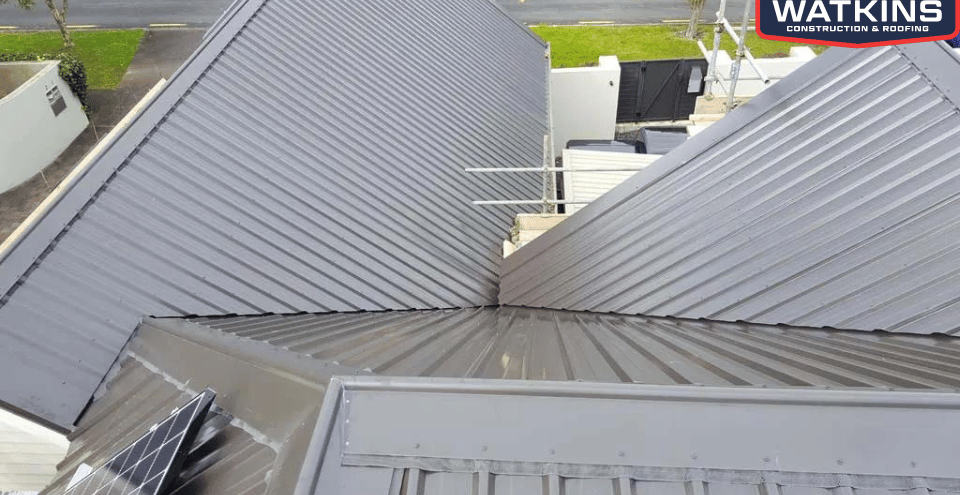What You Need to Know About DIY Roofing Projects from Watkins Construction & Roofing. Undertaking a do-it-yourself (DIY) roofing project can be a rewarding endeavor, allowing homeowners to save money and gain sense of accomplishment. However, it’s essential to approach such projects with caution and a thorough understanding of the work involved. Roofing is a complex and critical part of your home, and even small mistakes can lead to significant issues down the line. In this comprehensive guide, we’ll explore what you need to know before embarking on DIY roofing projects, ensuring that you’re well-prepared for the task ahead.

1. Assess Your Skills and Knowledge:
Before tackling a DIY roofing project, honestly assess your skills and knowledge. Roofing requires specific techniques, tools, and safety precautions that may be beyond the capabilities of the average homeowner. Consider whether you have experience with similar projects, and be prepared to invest time in researching and learning about roofing.
2. Safety First:
Roofing can be dangerous work, with the risk of falls and other accidents. Ensure that you have the necessary safety equipment, including harnesses, ladders, and proper footwear. Additionally, be aware of local safety regulations and codes that apply to roofing projects, as non-compliance can lead to fines and safety hazards.
3. Choose the Right Materials:
Selecting the appropriate roofing materials is crucial for a successful project. Research the materials that are suitable for your specific roof type and climate. Different roofing materials have varying lifespans, maintenance requirements, and installation processes. Make informed choices based on your budget and long-term goals.
4. Gather the Necessary Tools:
Roofing projects require a range of specialized tools, including roofing nails, shingles, underlayment, and more. Ensure that you have all the necessary equipment on hand before starting your project. Inadequate or incorrect tools can lead to subpar results and potential safety hazards.
5. Understand Roof Anatomy:
A thorough understanding of your roof’s anatomy is essential. Learn about components such as the roof deck, underlayment, flashing, and drip edges. Being familiar with these elements will help you identify potential issues and ensure proper installation.
6. Plan for Weather:
Weather conditions can significantly impact your DIY roofing project. Avoid working on your roof during adverse weather, as it can be dangerous and lead to suboptimal results. Plan your project for a period of dry, mild weather to ensure safe and effective work.
7. Seek Permits and Regulations:
Many roofing projects require permits and must adhere to local building codes and regulations. Check with your local authorities to determine if your project needs approval and ensure that you comply with all applicable regulations.
8. Prepare for Unforeseen Issues:
Roofing projects can uncover hidden problems, such as structural issues or water damage. Be prepared to address these issues promptly to prevent them from worsening. It’s advisable to have a contingency budget for unexpected expenses.
9. Start Small:
If you’re new to DIY roofing, consider starting with a smaller project to gain experience and confidence. Repairing a minor leak or replacing a few shingles can be a good way to familiarize yourself with roofing techniques before tackling more extensive projects.
10. Consult Experts When Necessary:
Even experienced DIY enthusiasts may encounter situations that require professional expertise. Don’t hesitate to seek advice or assistance from roofing professionals when needed. A small investment in expert guidance can prevent costly mistakes.
11. Prioritize Safety and Quality:
Above all, prioritize safety and quality in your DIY roofing project. Rushing through the job or cutting corners can lead to substandard results and potential safety hazards. Take your time, follow best practices, and ensure that your work meets industry standards.
12. Consider the Value of Professional Roofing Services:
In many cases, hiring a professional roofing contractor may be the best option. Professionals bring expertise, experience, and the necessary equipment to ensure a safe and high-quality roofing project. While DIY projects can save money, they also carry risks and may not always be cost-effective in the long run.
Conclusion:
DIY roofing projects can be a fulfilling and cost-effective way to maintain and improve your home. However, they require careful planning, safety precautions, and a deep understanding of roofing techniques and materials. Before embarking on a DIY roofing project, assess your skills, gather the necessary knowledge and tools, prioritize safety, and consider consulting professionals when needed. Whether you decide to take on the project yourself or enlist the help of experts, a well-executed roofing project ensures the protection and longevity of your home.
For more information, you can reach Watkins Construction & Roofing at 601-488-3179. We service areas in Jackson, Flowood, Clinton, and Ridgeland, MS.
